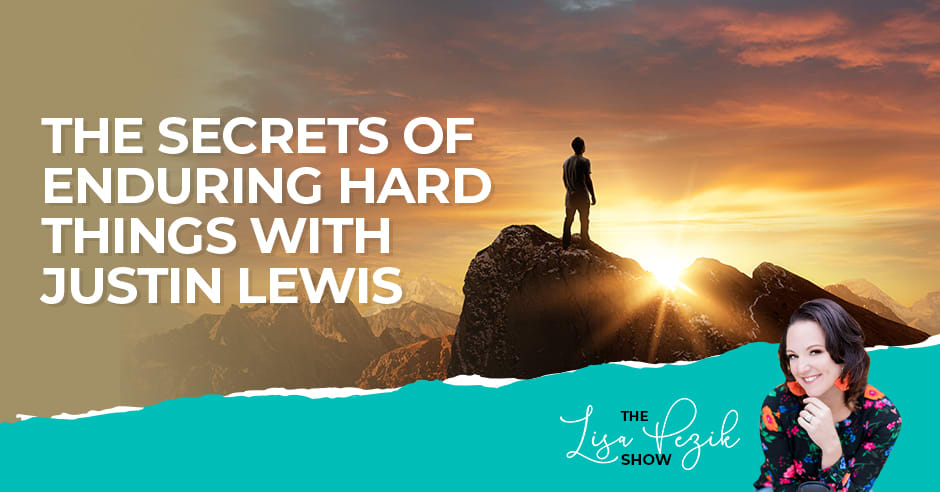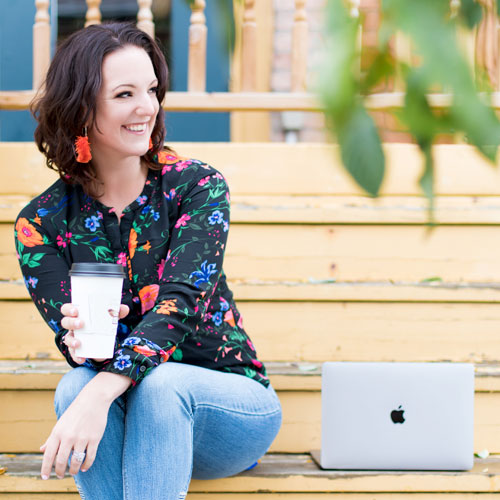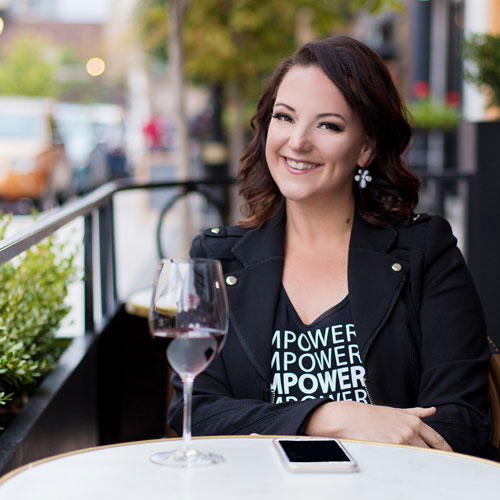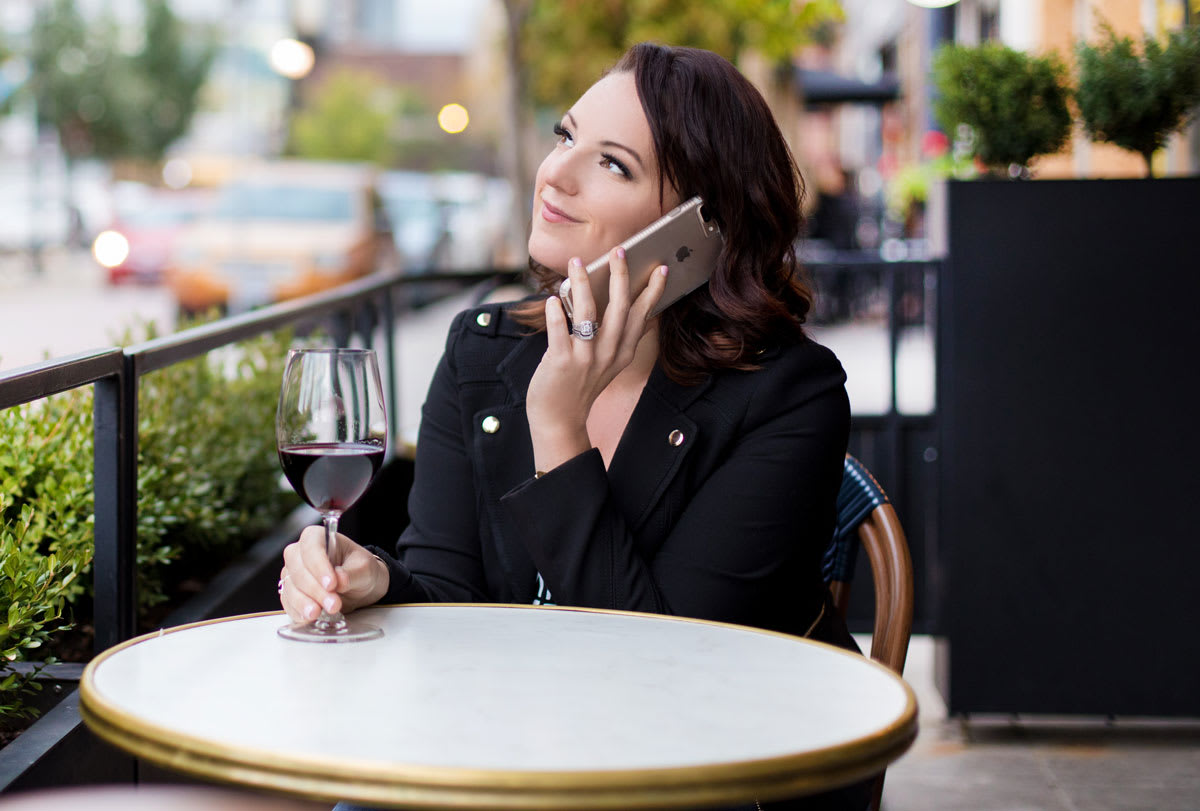
We’ve all gone through and will go through hard things in life. This 2020, whoever hasn’t endured one is either extremely fortunate or in denial. Lisa Pezik discusses this with Justin Lewis, creator of the podcast, The Hard Thing. Listen in as he shares the wisdom and knowledge he’s observed by having tough conversations with his guests. In this episode, you will learn that it’s not the hard thing that defines you, but what it is that you do in spite of it. Applying this realization to real life is what sets high-performing individuals apart! Justin also talks about the importance of having people see you for who you are and how to wedge yourself between where you are and where you want to go.
---
Watch the episode here
Listen to the podcast here
The Secrets Of Enduring Hard Things With Justin Lewis
I’m honored to have a fellow podcaster on with me, Justin Lewis, who runs The Hard Thing Podcast. We're going to talk about how do we overcome hard things. How do we navigate when we know something difficult is coming up in life or when every day you don't even know what is going to be thrown at you and what hard thing is going to fall into your lap?
---
Justin, thank you for being here with me.
Thank you, Lisa. I'm excited to be here and excited to share this message.
I can't wait to dive into the wealth of knowledge that you have from constantly having this conversation with people. Let me tell them about you. Justin Lewis is a full-time SEO specialist and he also hosts The Hard Thing Podcast. He connects and works with high performing individuals to extract out the deep principles of living a fulfilled life and reaching your goals by talking about doing hard things. He also puts himself into hard things with his co-host Ty Crockett in order to give his audience examples of what it looks like to do hard things. If you haven't got it yet, it's all about doing the hard things. Justin, how did this idea to even have this podcast come about for you and your buddy Ty?
Originally, it was just me. I added the co-host a few months ago. It was about June 2019. I love podcasts. I've been listening to podcasts for years now. I started a previous podcast that was more of a side project but a complete failure but I started thinking about the message I wanted to help people with. There were podcasts that I enjoyed and helped me. I started thinking about what are the major things that I've struggled with most of my life. The podcast idea came from two specific avenues. All growing up, I'm a huge nerd. I love nerdy things.
I love movies, books, and all that jazz especially Star Wars. I remember watching these movies and going into the movie theaters. I might be over emotional or whatnot but I would come out and have this weird withdrawal from this fantastical world that I got caught up with while you're watching it. I kept on feeling sad about my life and feeling like, “I'm not like Batman, Luke Skywalker, even real heroes like Braveheart or other movies that.” I realized that I'm not these people and I want to be them. I don't want to be some back character. What's the difference between me and them?
What makes me one of the actual characters in the movie rather than one of the people that you see in the background? That was the first experience you could say. The second one comes from my religion. I might've told you this or it might've been someone else but I'm a member of the Church of Jesus Christ of Latter-day Saints and not to go too much into that but we believe in the Book of Mormon which is similar to the Bible. We also believe in the Bible but in the Book of Mormon, there's a story of a father who is commanded by God to leave this grand city. After leaving and taking his family, God is like, “I needed to send your sons back all that long-distance and go get a book. It’s not just a book but a book from a wicked rich man who's going to kill your sons. That's what I need you to do.”
He has his older sons. He tells them and then they're not happy. He tells his youngest son and this is what keyed me off. The youngest son after learning what he needed to do, the father says, “I told your older brothers and they said it was a hard thing to do that I've required them.” The youngest son’s response is like, “It's a hard thing but we're going to get it done anyways. Bring it on.” As you follow their trajectories throughout their life, it's fascinating how stark the difference between the two is.
I started looking for that same pattern in other people's lives because again, I listened to a lot of podcasts and I hear a lot of high-performing individuals. I often watch and see how these individuals have this mindset of, “The hard thing is not going to stop me. I'm going to overcome it. I'm going to get on the other side of it. I'm going to do what it takes and do what I need to in order to reach that goal.” Those are the two things that inspired me to start doing this and having these conversations with people.
I love that awareness that you had from being a spectator to a player. As a spectator, we consume, watch the movie, read the book, go to the play, listen to the music, and see the art. The player, the contributor is the person that is in the movie and that creates the music and the art. You went, “I don't want to consume this and be the spectator. I want to be the hero of the story. I don't want to be the underdog. I want to contribute and put myself in that narrative.” That's such a cool flip because not the people that you have on your show because you have high-performing achievers that are doing good things in the world. Many people are on autopilot and not doing the hard thing because they think it's too hard. They don't have the confidence in themselves, or all those demons of but what if someone laughs at me, what if I fail or lose money.
It’s not over until it’s over.
All those fears that may never come true, people lead with that and they remain the spectator. They remain the consumer instead of the contributor. That's such a cool flip that you were like, “What's my part and piece? How do I do that?” I love that a podcast was born out of that. It made me laugh when you said the youngest son was the one that was like, “Bring it on.” I was always like the baby of the family. I don't know if you are but it's always like as rogue ones, we were the ones that have no fear because we've seen older siblings do hard things or not do hard things. I always find that interesting that there's always one in the family or someone that breaks the mold or legacy and says, “Let's rally and let's do this.”
When I was on your podcast, there was no Ty. It was you. Let's talk about the climate now because 2020 has been an unexpected hard thing. The difference between like, “I know this is going to suck and hard. I'm going to do it.” What do the guests say about the things that they don't expect to be, those unexpected bumps and bruises? Is there any of the fallback tactics that they go to no matter what? How do we navigate when we don't know what the heck is coming at us?
On all my podcasts, I ask all my guests, what's the hardest thing you've ever done? I went back, listened and wrote down all the things. In the beginning, I didn't do that but they answer that question. For most of the guests, the hard things often do bring some unknown or some surprise. It's funny because, in a way, the surprise doesn't define them if that makes sense. For example, one of my guests is Sean Lee who’s a friend of mine. He was diagnosed with cancer a couple of years after high school but that doesn't define him.
One thing I want the audience to understand is that with COVID-19 and the pandemic, civil unrest, job loss, fill in the blank, it's an ad-lib for tragedy in 2020, that's not what defines you. The hard thing doesn't define you. It's what you've done despite the hard thing. A lot of my guests keep a long-term perspective. Some of their hard things are divorced or failure or not going exactly where they want it to be but that was their hard thing. That's not what they're doing right now. The main thing I'd like the audience to know is that it's not over until it's over.
It's like that phrase where they say, “This too shall pass.” I heard a mentor say, “No. It's this passed.” When you say this too shall pass, it means, you're still living it, reliving it or in it as opposed to that passed. That's done. I learned from it, I made my way through it or let's focus on where I'm at now. I love the flip that you said. It's not the hard thing that defines you, it's what you did despite that or in spite of that and what you got out of it.
I'm seeing a lot of stuff on social media where people are like, “Let's throw up the tree, take a shot, have the ball drop and forget 2020. Write it off.” I'm like, “If you're alive in 2020, if you still have a job, you have your health, have a roof over your head or you got food on your table, we should be celebrating the hell out of the fact that we're here and we survive.” You think about how do we endure hard things and build endurance. It's through enduring of how resilient we are. Do you have kids yet?
I don't have kids yet. I have a puppy but it's a little bit different.
Think of how resilient your marriage is. I think about how resilient my little guy is. You're right on what you said to fill in the blank of tragedy. That's a reality but look at how much resilience we built. For me, it's been problem-solving. The first time, I was ticked off that I had to figure all these things out and navigate everything. I'm like, “I'm resourceful.” Giving yourself that credit back. It wasn't the hard thing, it was how you handled it.

It's funny that you bring up endurance. I tried to look for attributes or things about the guests themselves that made it so they could overcome obstacles. The number one thing that I found was their ability to endure the pain of some shape or form. What you've said there about enduring, that is the number one thing that's going to help you get through hard things. Being able to take mental, physical, social, spiritual and financial pain longer than the person next to you, that's going to set you apart from them.
How many guests are we talking? How many episodes are you in?
I released my 74th episode which is when I released guest interviews. I don't think it's 74 because there was an episode where they didn't have very many guests. When you start off podcasts, that's what happens. My guests are around 60.
Are people coming to you on your podcast resolved? Are they ready to talk about these hard things or do you have to pull it out of them sometimes because they're reluctant to share?
Most of them are fine to talk about them. I haven't had a moment to ask a question on my guest and I'm not comfortable answering that. Before the shows, I try and say like, “Is there anything you don't want me to talk about?” They let me know. As far as being resolved, there was one guest I had. He is a police officer from Illinois. He has cancer as well but he hasn't been in remission. He's still fighting it but he came on the show and he's like, “Based on what the doctors have told me, I'm going to die in a couple of years.” He was trying to make the best of it. That was one example of someone who is in a hard thing that they might not get out of alive but they're going forward with a nice attitude. I would give that example to your audience and say, “If COVID-19 or 2020 isn't rubbing you the right way, just make it through and keep your attitude right. If you don't make it through, you'll be in a better place than the rest of us.”
I help a lot of health and fitness coaches and they're always like, “I'm still on my journey.” Sales coaches, business coaches, therapists or marriage counselors that are still working on their own marriage and they’re like, “I'm not there yet.” I'm like, “What’s there yet?” There isn’t perfection standard that once you reach this point, your good enough, smart enough or qualified enough. I always think you only have to be one-step in front of someone to offer your hand and say, “This way instead of this way.” There are humility and vulnerability when people are willing to share honestly and truly what's going on and where they're at. I'm going to flip the question on you then that you asked me when I was on your podcast that you got to ask everyone. What is the hardest thing you've ever had to endure?
You're the first person that has asked me this question. I've been secretly dreading this question because it's hard to answer. Asking the question and answering it is a hard thing in and of itself but luckily, I did think about it. I know this answer is a cop-out. I'm going to give two answers. One, I've done a lot of different hard things, at least hard things for me. It's harder for me to prop one up and say, “This is the overall hardest thing.” The overall hardest thing, primarily because of the duration has been learning how to take two separate people who have been apart for most of their lives up until this point and then smack them together like two comets in space and hopefully, make some habitable planet where you can raise a family.
I'm talking about marriage, of course. Take all the baggage and all of the negative things that you're bringing to the relationship because you didn't sort it out before but try and sort it out together in a way that still keeps both of you alive and loving each other. That's been very challenging. It's my favorite hardest thing too because it's the most rewarding thing. Every day I get to look at my wife and be like, “I’ll choose this every single day. I'm happy, it makes me be a better man and it gives me more fulfillment.” That's my answer.
Surround yourself with people who believe in you more than you do.
Commitment is such a huge gut-check. If you're dating someone and you're not that serious or you're dating multiple people and you got options, when you take a vow, you get married, you're in the house with that person that you feel waking up every day, putting on the coffee staring at each other, and you don't have a lot of options, you’re like, “This is important to me.” I remember when my husband and I first got married. We were to live together. I was from the US and he was from Canada. We had a two-year engagement because I had moved up here. We spent two years living together before we got married. For me making it to the wedding was like when everyone always says, “If you can survive the first year of marriage.” For us, that first two years is where we were all up in each other’s stuff living together that I get why people say because the old school you don’t live together.
Still now, you don't live together yet but we had lived together before we got married. I remember an ex-boyfriend saying to me, “When you get married, do you see that lamp over there? That's not your lamp. That's our lamp.” I was thinking, “What?” In my early twenties, I was like, “Now, that's my lamp. That’s my food in the fridge.” He is like, “No.” You’re right. You bring together your past, families and stuff. It is the union. That's the hardest yet most beautiful thing because when it's hard, it means you're being real.
Couples that say, “We never fight.” You are not talking the truth in your house. Hard means you care. When you're willing to have those discussions, it's because you don't have another option because you're going to go, “Let's talk about kids.” “We don’t need to talk about that. If I want to have kids and they don't, we'll divorce.” You're having those hard conversations whether it's kids, jobs, pets, money, things or whatever it is because it matters and you're in it.
Has a guest ever stumped you? Have they ever started to talk about a hard thing and you didn't know where to go with the conversation or anything big came up and you're almost like, “I don't know?” You're talking about cancer and I'm sure there's a lot of vulnerable goodness shared. You were talking about those movies that you love. Your podcast is right there with it by sharing these amazing stories. Were you ever stumped or taken aback by a share?
There are shares that surprised you. I don't know if I've ever been taken aback by a share as in I didn't know where else to go. That hasn’t happened but it's mostly because of my lack of ability more than the surprisingness of their story. Usually, when they say something surprising, I love that because I try to dig into it and figure out what's going on. I had one guy, his name is Rob Decker. I had read up a little bit about his story but having him tell it was impressive. His story is, “What's the hardest thing you've ever done?” “I came to terms with all of my BS and had to be honest with myself after surviving a suicide attempt, falling from a three-story building, breaking my back, having my ex-girlfriend accuse me of rape and being arrested for that.”
You have that and you're like, “Where do I start first?” For me, one thing I try to do is pull out actionable items for my audience because that story is just a story unless we learned something from it. One thing I liked about Rob's was his decision to be honest and talk about truth and say like, “I was filling my life with bull crap and I was surrounding myself with people that weren't good. I was reflecting what I had on the inside and on the outside of myself. To change my life, I had to change myself and my life.” That was one example.
If someone is going through a hard thing and they don't think that they can make it, they don't think they can endure and make it through, what was some of the best advice that your people gave? You talked about the happening despite but was there anything else juicy that they gave.
I hate to say it but it’s juicy. All of the action items and advice is usually like, “That does make sense. Why didn't I think of that?” It's obvious. I would say the number one thing that most of my guests have said is to put together a good team, to build a great team and to put people around you. You can see this in those stories as well as. Many of my guests come from situations or I'm guessing many of your audience don't believe in themselves. They're at this level because that's where their mind is, they think they are, and their identity is.

A lot of these guests have people around them that at one time or another had this belief that, what are you doing down there? Come on up here because that's where you exist. I interviewed Tommy Parker, he's a triple amputee. He was in the Marine Corps. He stepped on an IED, blew off his legs and all of his fingers on his left hand except his thumb. He started recovering and learning how to write again because he was left-handed and he then became a drug addict because everyone was like, “You're in pain. You're an amputee. It's okay if you're a drug addict.” He crafted this identity for himself where he was proud of being a drug addict.
One day, he got caught and he was arrested. His girlfriend, at that time, said to the judge, “Release him to me. I'll take care of him.” Tommy was like, “Why?” It was because she believed that's not who he was and he could be someone more. That was what allowed him to break that cycle of being a drug addict. Having people around you that are good for you and believe in you more than you do, that is the biggest tip I could give to your audience.
That's good. As human beings, we all want to be seen, heard, and validated. There's huge power in someone saying, “I see you.” You see you here, you see you at a certain level, status or whatever. I see the real you. I see you here. I want better for you. That's so true. In this landscape, I don't know about you if you can say the same but my relationships, friendships and marriage have gotten stronger this year. I think I took it for granted prior to the job. I’ll call my friends when I can. I'm building my business and I'm doing my thing. Now I'm like, “I need people.” How much I even miss human interaction, hugging people and being with people. Has the same happened for you? Do you hold people a little tighter this year from what's been going on?
I do. I've also been lucky because I've been having these conversations with people. It's a constant reminder that people are going through way harder things than I am. You can't compare hard things because they're hard for everyone, but it's been a good reminder. It's also been a reminder to not focus on relationships that don't reciprocate. There are always those relationships that we don't appreciate as much as we should like friends who were always there and they don't ask for anything in return. This 2020 has opened my eyes as to the value of those people to help me appreciate and reciprocate more to them rather than the people who don't give me the time of day but are cool or have the nice toys or whatnot.
You start to question, what does bring you joy and value? If you have more time than before, who do I want to spend this time with? Who do I want to give my time and attention to? That's good. I have a question about your podcast. I did a lot of questions about people who want to have a podcast and a lot are about the content and the structure. I completely free flow and I do that by choice. I know you do too but I believe you have a little bit more of a structure. Mine is 100%, “What do you want to talk about? Let’s get on and go.” You have a little bit more of a structure of strategy. Would you mind sharing that with the audience if they're trying to figure out how they want to flow with their shows when they have guests on or themselves?
Before you even start recording, to make things easier, figure out who you're trying to talk to and the things you want to talk about. I was lucky enough to have a good idea about what I wanted to talk about and who I want to talk to. It was good at the beginning and then it shifted a little bit so I talked to the right people. Once you have that, it becomes much easier to find topics. If it's something that you want to talk about, you're going to find things that you can talk about often. They don't have to be as fleshed out as you think. You don't have to write it word-for-word especially if you're doing a solo cast.
Put a couple of bullet points that you're certain you could rant on about. If that's what you want to talk about, that's what you talk about. As far as guests, I've been lucky. With all the guests, at the end of every show, I ask, “What are some things I could have done better? How can I improve?” When I first started, I was bad. I hate the fact that our first episode is our first episode because that's the one that people usually go back to listen to first if they're going to binge a show but that's also the worst episode you have. I would recommend you do that with your guests and ask, what could have I done better?
Also, pay attention to other people who you listen to a lot and figure out what they do well. One thing I like to do is take a lot of notes when I record. It might not seem that I'm paying attention but I'm writing a bunch of notes down because if I do lose my train of thought, which happens more often than I'd like to admit, I can look down and see this big word I've circled three times and be like, “That was something interesting they said. I want to dig into that.” It allows us to go back to some of the stories they've shared and pry open those pearls of wisdom that we can then hand to our audience.
Whenever you’re confronted with a hard thing, put yourself in a position of inevitability where you just have to push through.
One of the things I like about you is your humility. I'm sure that your episodes do not suck, the first one that you had. I get it. I'm the same. I'm at episode 177 and I go back to 1, 2 and 3. You're on where you were at the time you were. I remember when you had me on, I was like, “Can we have reciprocity? I'd love to have you on mine.” You're like, “I’m boring. I don't have anything interesting to say.” I was like, “That's not true. I see you.” You shared so much wisdom and gems, not only from the guests that you have but from your own personal life.
I love the humility, honesty and who you are as a person. I felt comfortable when I was on your show. You make people want to be around you and feel comfortable. That's a big responsibility to shoulder that, “Come and share with me the hardest thing you've ever been through.” I don't know if you can give yourself enough credit for how good you facilitate hard and vulnerable conversations. I want to say thank you for taking that on.
I always see we're always looking to a leader to inspire us or tell us what to do. They could be the person sitting next to you or the person on the bus that you got in the elevator with. We all have these stories. As you said, we all have these hard things. I love that you provide such an amazing space to share those stories and the actionable, I'm all about the like. What are we going to now do with this nation? Let's inspire and let's give people some steps to get through. Thank you for that.
Thank you. That was very kind.
Is there anything that you got to tell people that you looked back through your notes from having all these amazing guests on? I know you're a nerd and I love that about you. I am too so I'm sure you noticed. Is there anything that we missed that we got to let them know? Did we cover it off? Are we good?
I do have one thing I would like to share. You mentioned commitment and I'm happy that you did because looking for similarities between the people, who they are and doing the hard things, I noticed that often, these people doing the hard things put themselves in a position of inevitability. It's by Robert Frost where he says, “Sometimes, the only way out is through.” Often with these people who do these hard things, these high achievers, they put themselves in these situations whether for better or worse, the only way out is through inevitably. I can cite numerous examples of people who got fired from their job. They had to do something else. One of my guests overdosed on Nyquil and that set him on his trajectory of figuring out like, “My mental state isn't where it should be.”
It's maybe the fact of learning some knowledge that you can't unlearn like realizing that, “I have been responsible for everything in my life that I have done up until now.” Once you know that you can't unknow that, you have to act accordingly. I would like to encourage the audience to think about some of the things they would like to become, do or have in their life, think about the hard things that are in between them, getting those things and put themselves in a position of inevitability. Funny enough, this show itself for me has been one of those positions of inevitability.
Once you start a podcast and you start telling people about it, you're chained to this thing. You have to put out content but also you have to live the principles that you're trying to tell people to live. It's nice because it's good reminders to me that whenever I have a relationship coach or someone good at negotiations. Whenever I have a conversation with him, afterwards I’ll be like, “I'll go talk to my wife.” I will be like, “I had this talk with a guy who's all about relationships. I need to be better with my relationship with you.”

My wife is super supportive luckily but I would recommend you think about the hard things that are in between you and where you want to be. Strategically, don't quit your job but put yourself in a position of inevitability where you have to push through. As Lisa said, you're more resourceful than you think. All of us have many resources at our disposal that we take for granted but we can do much more than we think.
I was talking to a podcasting expert and she’s saying, “You have 174 shows. That's amazing. Most podcasts don't make it past 100 shows.” Either it’s too much work or they're not consistent enough. I'm always on the same mindset as you. If I'm going to do something, I'm going to do it. If there's a nugget of wisdom or something that's self-reflection of how am I going to get better, that's the cool part of being able to talk to many interesting people. It's that full circle. Not only are you putting it out into the world but you're taking it in and thinking, “How am I going to change that in my life?”
It’s huge accountability when you dive into these conversations. I love that you talked about that space between where you are now and where you want to be and putting yourself right there. Every day, doing those hard things and taking that step-by-step to get there. I was able to see Dr. Ben Hardy on a mastermind call and he said, “The problem a lot of times is that we talk about our self in the past.” We don't talk about in the future like, “I was a former nurse or I'm an SEO specialist.” “I facilitate amazing conversations on The Hard Thing Podcast. I have no greater joy in life than sharing this goodness and getting better every day.”
We talk about where we were or where we are instead of where we want to be and where we're going. I love that you brought that up for people because you haven't been doing it especially as we get towards the end of the year and we're going to be starting another year. Now is such a good time to figure out where you want to be, where that space is and what things you're going to commit to. Not what sounds good, what you'd like to do, what you maybe do or you're going to commit to.
Justin, thank you for being here and taking this time with me. I can't believe these words even came out of your mouth. You’re like, “I know nothing good to share.” You have no plans to stop this The Hard Thing Podcast anytime soon. If you've got a good hard thing that you want to talk about, Justin is your guy. I highly recommend that you tune in to his podcast. It is good. Share it with everyone that you know. How can they find you, Justin? How can they reach you? How can they find all your stuff?
I have TheHardThingPodcast.com which is my website. I'm on all of the major directories, Apple Podcasts or Google Play. Just search for The Hard Thing Podcast. Reach out to me on social media and talk to me about the hard things you're doing. I'd love to start that conversation and see what you're up to. It’s @TheHardThingPodcast on Facebook, Instagram and Parler, if you guys are into that.
Justin, thank you for being here with me. You are amazing. Readers, thank you for reading. I hope this gave you some inspiration. Go back to this because it's not like you go through one hard thing and then you're like, “Tick that off. I'm done now. I'll never go through another hard thing in my life.” Use this show as a resource to come back to when you're in the middle of a hard thing. Use this to get you through and as a resource. Listen to Justin, tune into his podcast. You are not alone. Justin talked about have that team and those people around you. If you're like, “I don't know if I have those.” This is a great place to start. I’m glad that you're here. Thank you and I'll see you next time.
Important Links
- The Hard Thing Podcast
- Sean Lee - Previous Episode on the Hard Thing Podcast
- Rob Decker - Previous Episode on the Hard Thing Podcast
- Tommy Parker - Previous Episode on the Hard Thing Podcast
- Show - Lisa Pezik on the Hard Thing Podcast
- Dr. Ben Hardy
- TheHardThingPodcast.com
- Facebook - The Hard Thing Podcast
- Instagram - The Hard Thing Podcast




